Hazara Shia Muslims mourn miners, vow to continue sit-in in Pakistan
Thousands of mourners from the Shia Hazara Muslim community say they will continue their protest sit-in alongside the bodies of the miners recently killed by Daesh terrorists in the troubled southwestern Pakistan.
Shia leaders said on Tuesday that they would not leave the protest site, on the outskirts of Quetta, the capital of Balochistan Province, until Prime Minister Imran Khan meets them and the killers are brought to justice.
"We have become tired of picking up the bodies of our people," said Syed Agha Raza, a Hazara political leader.
Agha Daud, the chief of Balochistan Shia Conference, voiced concern, noting, "The latest wave of killings will spread to other cities, including Quetta, if decisive action is not taken at this stage."
Masooma Yaqoob Ali, a female protester, said her elder brother, along with four other relatives, was among those killed. "Now we have no male member [of our family] to take coffins of our brother and other relatives to the graveyard for burial," she said.
Since Monday, up to 2,500 protesters had gathered with the bodies in coffins and blocked a highway on the outskirts of Quetta, demanding justice.
At least 10 miners were kidnapped before dawn on Sunday near the remote coal mine in the southwestern mountainous Machh area, 60 kilometers southeast of Quetta City. Several of them were beheaded by the militants.
Hours later, the Takfiri Daesh terrorist group claimed responsibility for the massacre.
This was the first major attack targeting the Hazaras since April last year, when a bomb blast killed at least 20 people at a market in Quetta.
The Shia Muslims of the Hazara minority frequently come under attack by the terrorists active in Balochistan.
In 2013, three separate bombings killed more than 200 people in different Hazara neighborhoods.
Quetta, the largest city of Balochistan, has seen several bombings and shooting attacks over the past years.
Pakistan's restive and mineral-rich Balochistan Province was rocked by a series of terrorist attacks in late 2016, raising fears about an increasing presence of armed militants in the area, including terrorists linked to Daesh.
Separatist militants in the province have also been engaged in a decades-long campaign against the central government.
Despite frequent offensives by the Pakistani army, acts of terror by militants continue to target security forces as well as civilians.
Thousands of Pakistanis have lost their lives in bombings and other militant attacks since 2001, when Pakistan entered into an alliance with the United States in Washington's so-called war on terror.
Thousands more have been displaced by the wave of violence sweeping the country.
World leaders, states hail ICC arrest warrants against Netanyahu, Gallant
VIDEO | Israeli policies strangle Palestinian agriculture, economy
Iran's president offers condolences to Pakistan over terrorist attack
Canada’s Yukon town council at standstill over refusing oath to King Charles
Yemen's Houthi calls for jihad to protect Palestine against Israel
VIDEO | Internal rifts within Israel
Russia launches 'ICBM' for first time against Ukraine: Kiev
Scores killed as Takfiri terrorists target Shia Muslims in Pakistan



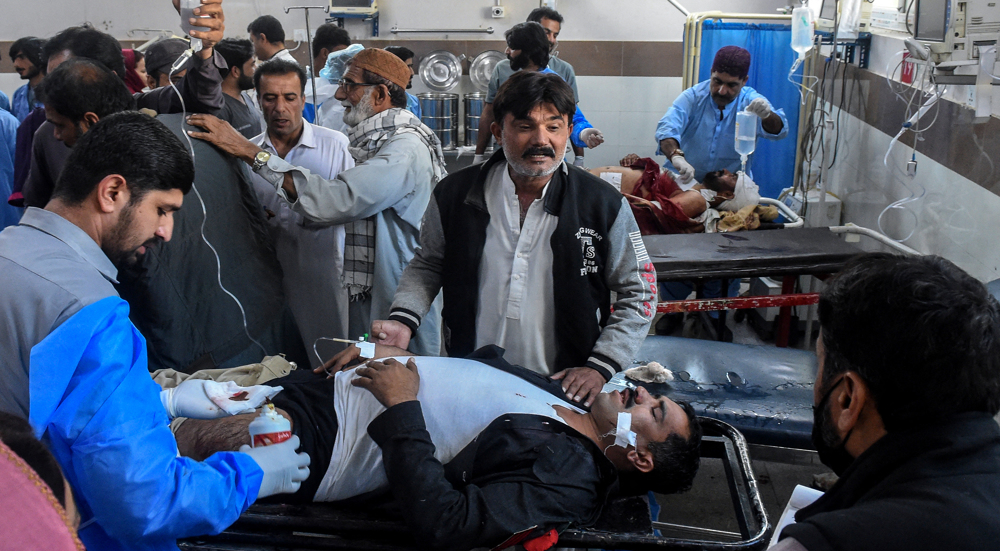
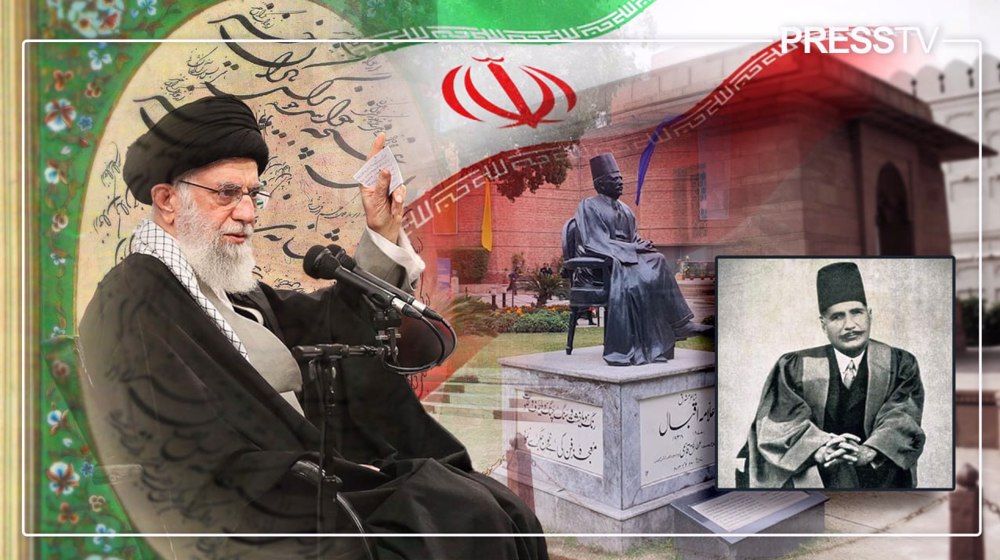
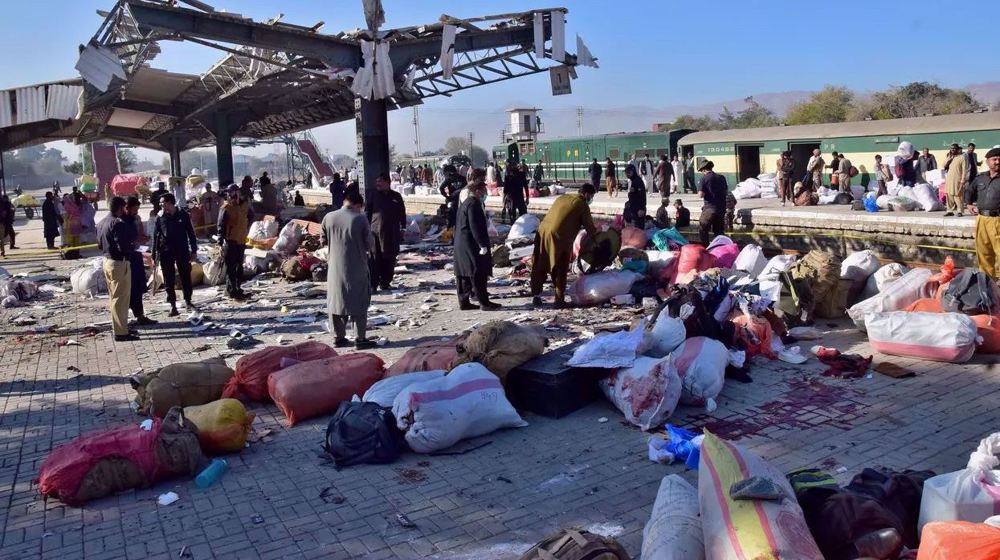



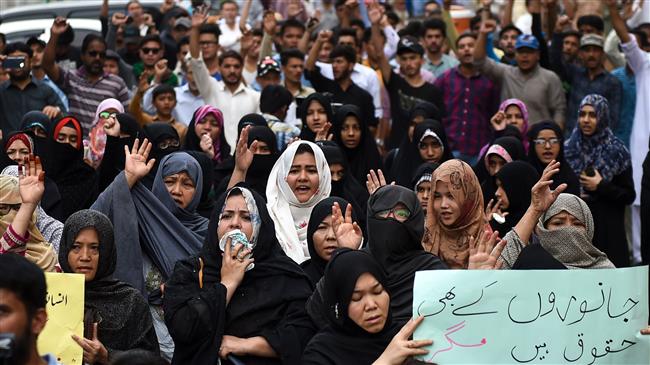
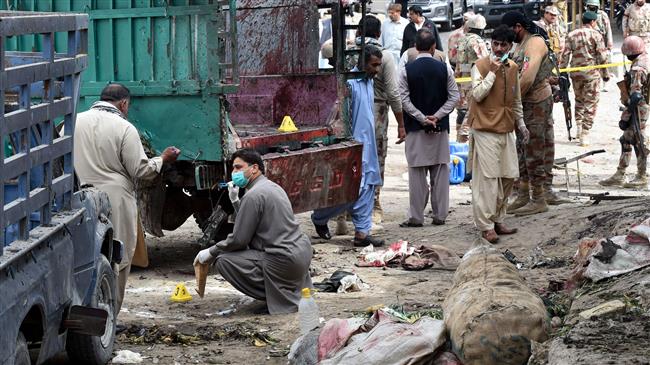
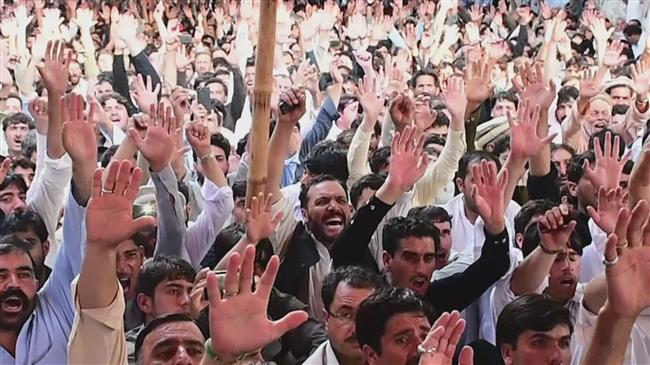


 This makes it easy to access the Press TV website
This makes it easy to access the Press TV website